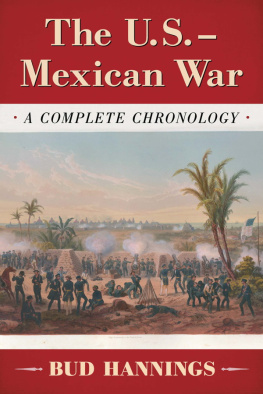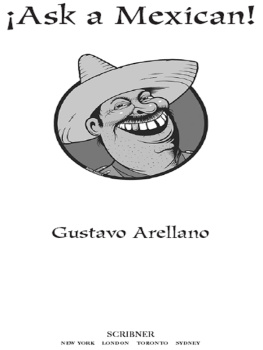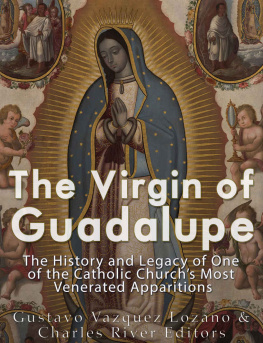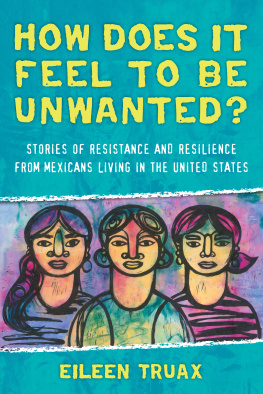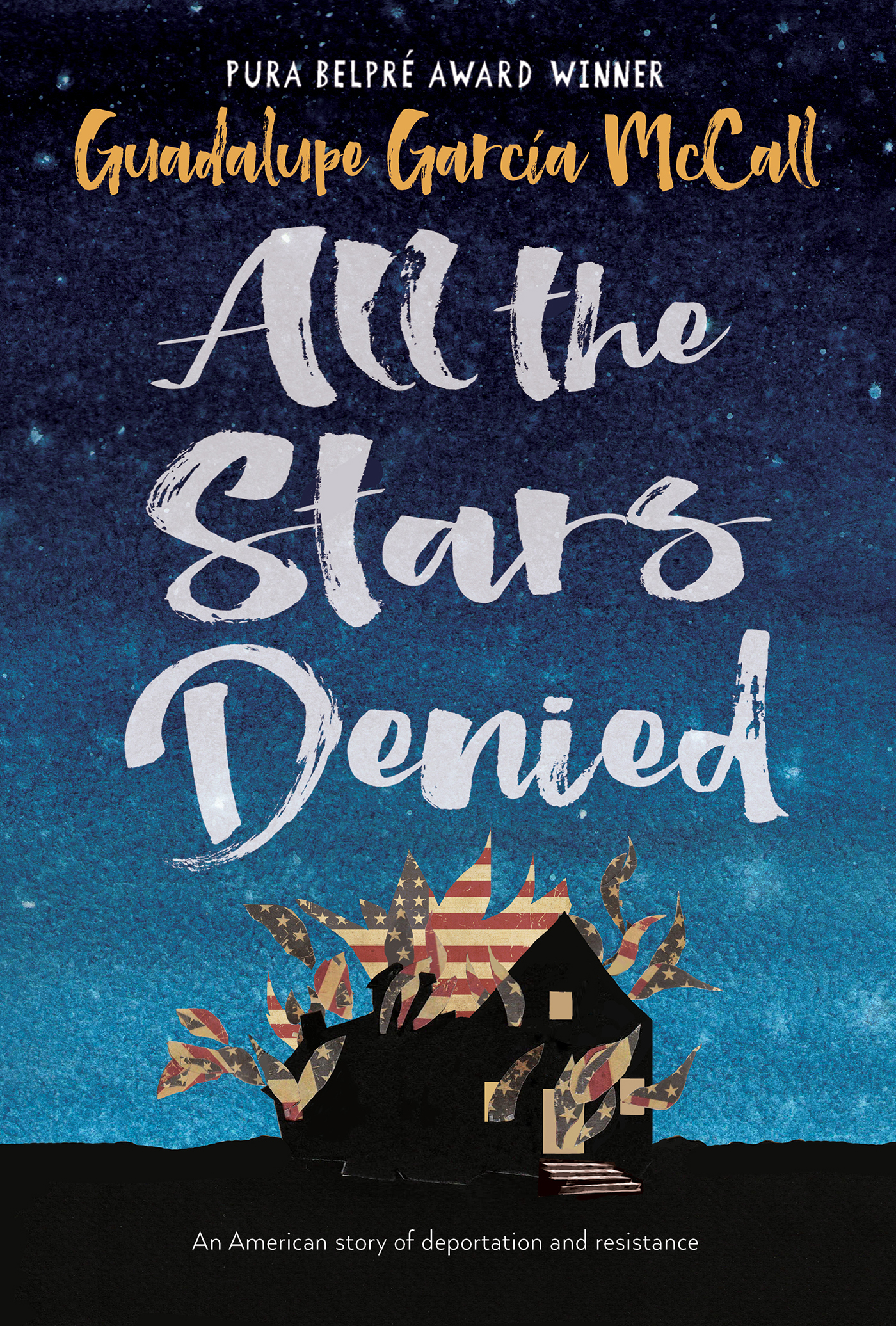
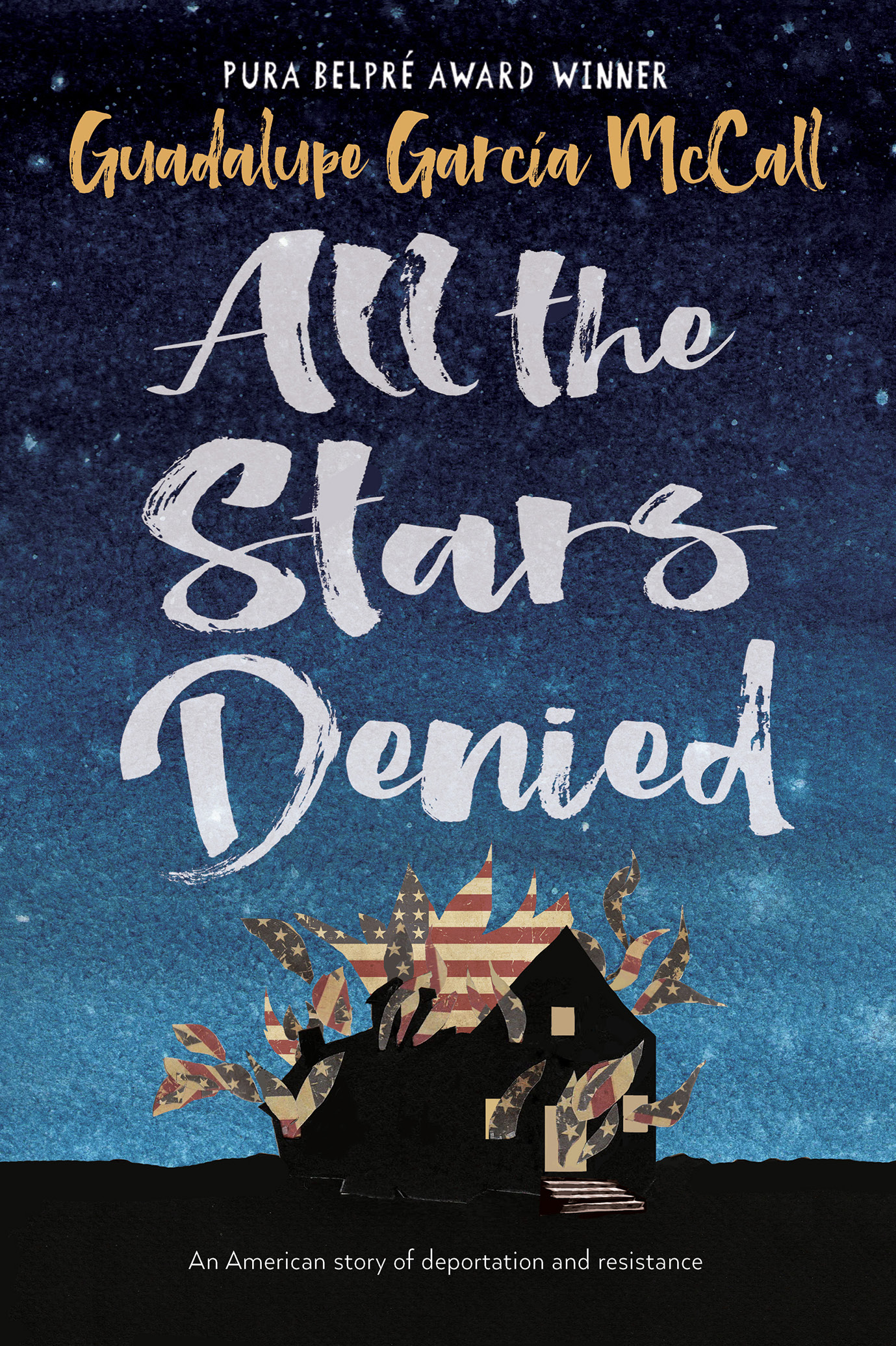
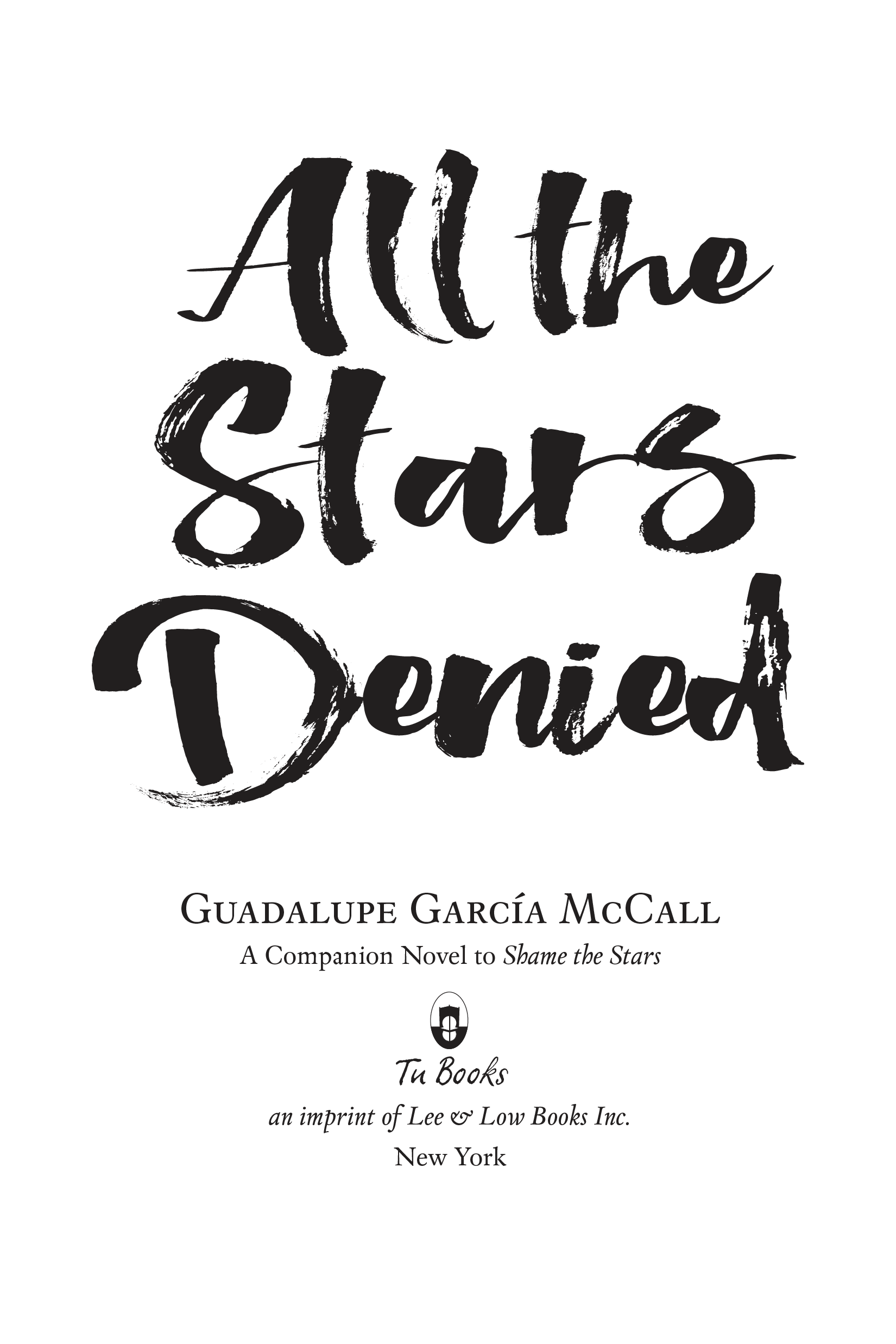
This is a work of fiction. Names, characters, places, and incidents are either the product of the authors imagination or are used fictitiously, and any resemblance to actual persons, living or dead, business establishments, events, or locales is entirely coincidental.
Copyright 2018 by Guadalupe Garca McCall
Cover illustration 2018 by Susan Roth
Photograph in background of cover Bonita/Shutterstock
All rights reserved. No part of this book may be reproduced, transmitted, or stored in an information retrieval system in any form or by any means, electronic, mechanical, photocopying, recording, or otherwise, without written permission from the publisher.
TU BOOKS, an imprint of LEE & LOW BOOKS Inc.,
95 Madison Avenue, New York, NY 10016
leeandlow.com
Edited by Stacy Whitman
Interior design by Neil Swaab
Jacket design by Christine Kettner
Ebook production by Abhi Alwar
The text is set in Espinosa Nova
First Edition
EPUB ISBN 978-1-62014-283-7
Library of Congress Cataloging-in-Publication Data
Names: McCall, Guadalupe Garca, author.
Title: All the stars denied / by Guadalupe Garca McCall.
Description: First edition. | New York : Tu Books, an imprint of Lee & Low
Books Inc., [2018]. | A Companion Novel to SHAME THE STARS. | Summary:
When resentment surges during the Great Depression in a Texas border town, Estrella , fifteen, organizes a protest against the treatment of tejanos
and soon finds herself with her mother and baby brother in Mexico.
Identifiers: LCCN 2017058034| ISBN 9781620142813 (hardback) | ISBN
9781620142837 (mobi) | ISBN 9781620142820 (epub)
Subjects: | CYAC: Race relations Fiction. | Mexican Americans Fiction. |
Deportation Fiction. | Depressions 1929 Fiction. | Family
life Texas Fiction. | Texas History 20th century Fiction.
Classification: LCC PZ7.M47833752 All 2018 | DDC [Fic] dc23
LC record available at https://lccn.loc.gov/2017058034
For my beloved granddaughter, Juliana Harley McCall.
Your sonrisa makes everything better.
Thank you for helping me with my revisions!
And to my husband, Jim, el gran amor de mi vida.
To another thirty years together and many,
many more fun-filled days with our grandchildren.
Other books by Guadalupe Garca McCall
Under the Mesquite
Summer of the Mariposas (also available in Spanish as El verano de las mariposas )
Shame the Stars (a companion novel to All the Stars Denied )
Eco-poetry is a form derived from what used to be known as pastoral or nature poems. Eco-poetics is the study or creation of poems that explore the natural world, including the nature of humans. At its best, this seemingly simple form urges the reader to think critically about the layered meaning within the context of the poem. Eco-poetry has been around for many years and has been used by renowned poets from all over the world, including Walt Whitman, Emily Dickinson, Pablo Neruda, Langston Hughes, Ernesto Cardenal, and many others. Many modern eco-poets use the form to bring attention to environmental and ecological issues. In this book, the main character, Estrella , experiments with the form used by her favorite poets.
A poem from Estrellas journal
Sunday, November 15, 1931
BEYOND THE CREEK
Joyful crabgrass sings; the simple beauty of its long
Thin fingers ascends to the sky on angled wings of tall rachis.
Smiling florets on slim spikelets; arms that bend
Back and forth, and side to side; hands that swing,
And twirl, and glide. Its lovely dance seduces spring,
And summers besot by the charm it brings. But
When the earth lies down to nest, the crabgrass dies
And leaves behind a void too great to sow with time.

Chapter One
Ive been thinking a lot about the desaparecidos in Monteseco . This morning in church my uncle Toms asked whats left of our congregation to pray for our repatriated brothers and sisters. When the prayer was done, I looked around at the empty spaces, the missing smiles, mothers, fathers, brothers, sisters, entire families just gone vanished. My best friend, Sonia , used to sit behind us. Nobody sits there now. She left with her family in May. Her family had a restaurant in town, but they lost their business with the market crash. Everything went downhill after that for them. He couldnt get government help, and nobody else would hire him. Her family took advantage of the free train fare program in Laredo , and they headed out to Michoacn , where she said they had an uncle they could stay with until things got better in the United States. Then, maybe, they could come back.
The market crash affected everyone, mexicanos and Anglos alike. According to national news, we are in a depression. My parents tried helping as many people as they could, but there was only so much they could do. Our property, Rancho Las Moras , is one of the last few places still owned by mexicanos in Texas. Most of the ranches and businesses in and around Monteseco have been bought out by Anglo immigrants. Theyve divided the town into two sections, our side and their side. They dont bother us if we dont bother with them. Not that there are many people to bother on our side. So many mexicanos have either left or been sent back to Mexico , our side looks dead a patch of parched dirt, hollow and barren, compared to their side. Thats what the poem I was working on was about, the sadness I felt when I thought about the missing mexicanos in South Texas.
Estrella ! my mother, Doa Dulcea del Toro , called out from the porch of our ranch house. Are you out there?
I stopped writing, laid my pencil along the seam of my journal, and pressed my forehead against the page. No. No. No . My mind whirled with all kinds of excuses, all the reasons I could give for being out here, lying down in the middle of a field in our back yard, instead of helping our upstairs maid, Sofa , pull the sheets off the beds and take them out to the wash house like Id promised.
E strella !
I could tell by the way Mam called my name, accentuating the last vowel with an assertive note, that this was absolutely the last time she was going to yell before she left the porch and came out to get me herself. And God help you if I have to do that , the tone of her voice said.
I lifted my head and looked back at the house. Yup. She had her hands on her hips and, more importantly, she was wearing an apron. She meant business.
Housework, I groaned to myself. The worst business of all. Because no matter what anybody ever told me, as far as I was concerned, housework was the worst kind of evil ever imposed on women. I never got tired of saying it. And I suspected I would always feel the same way.


